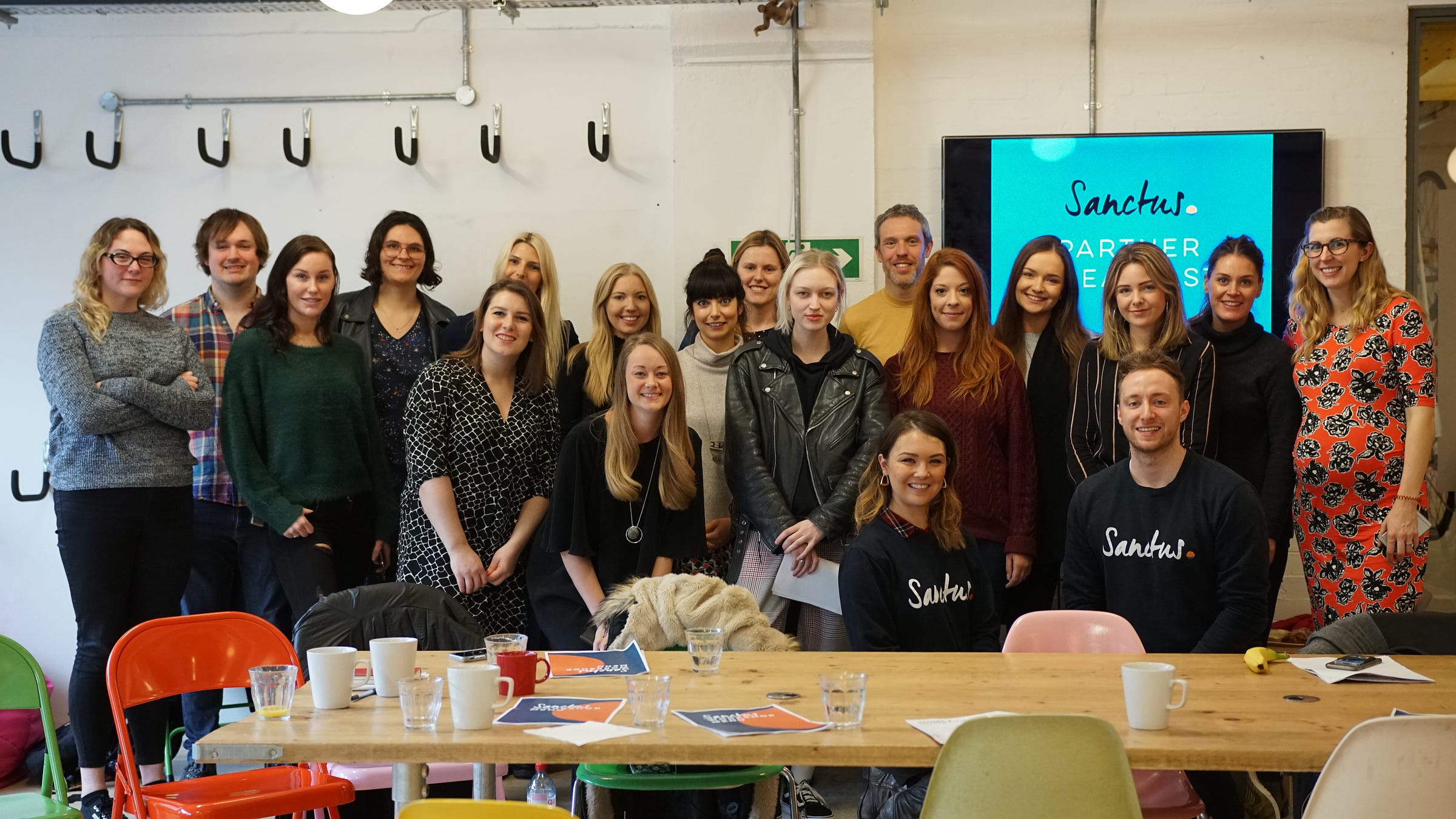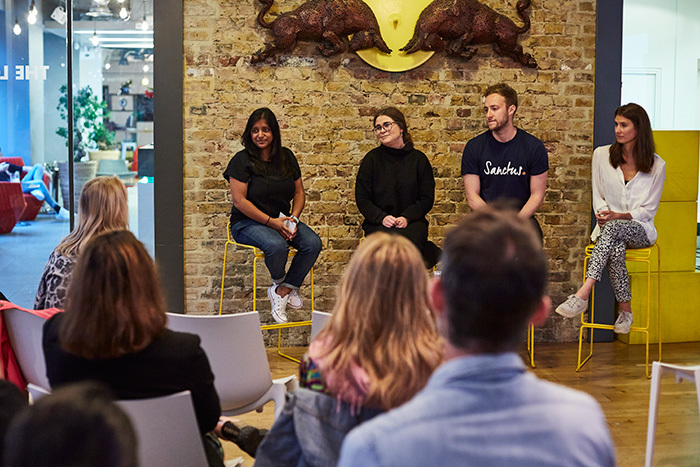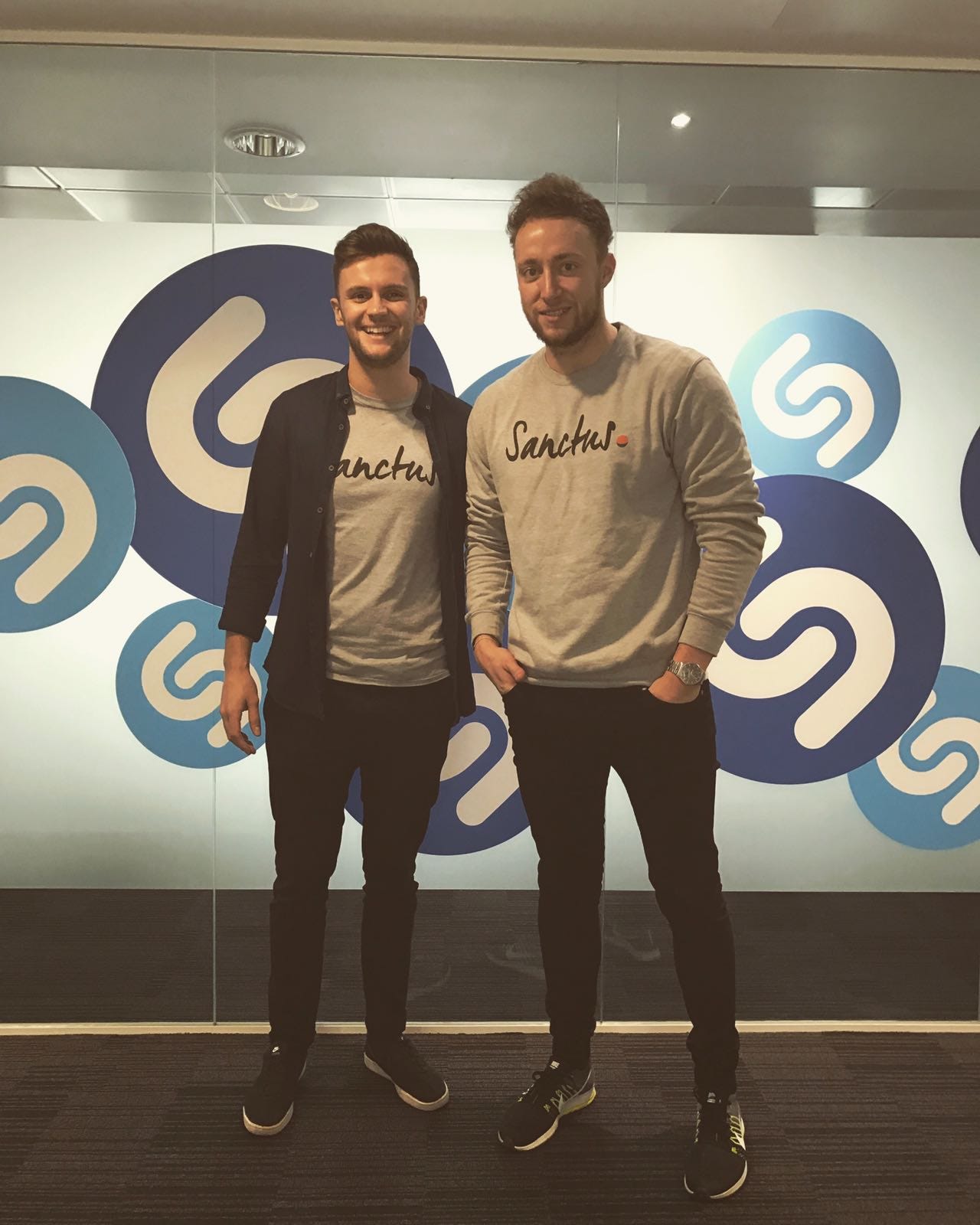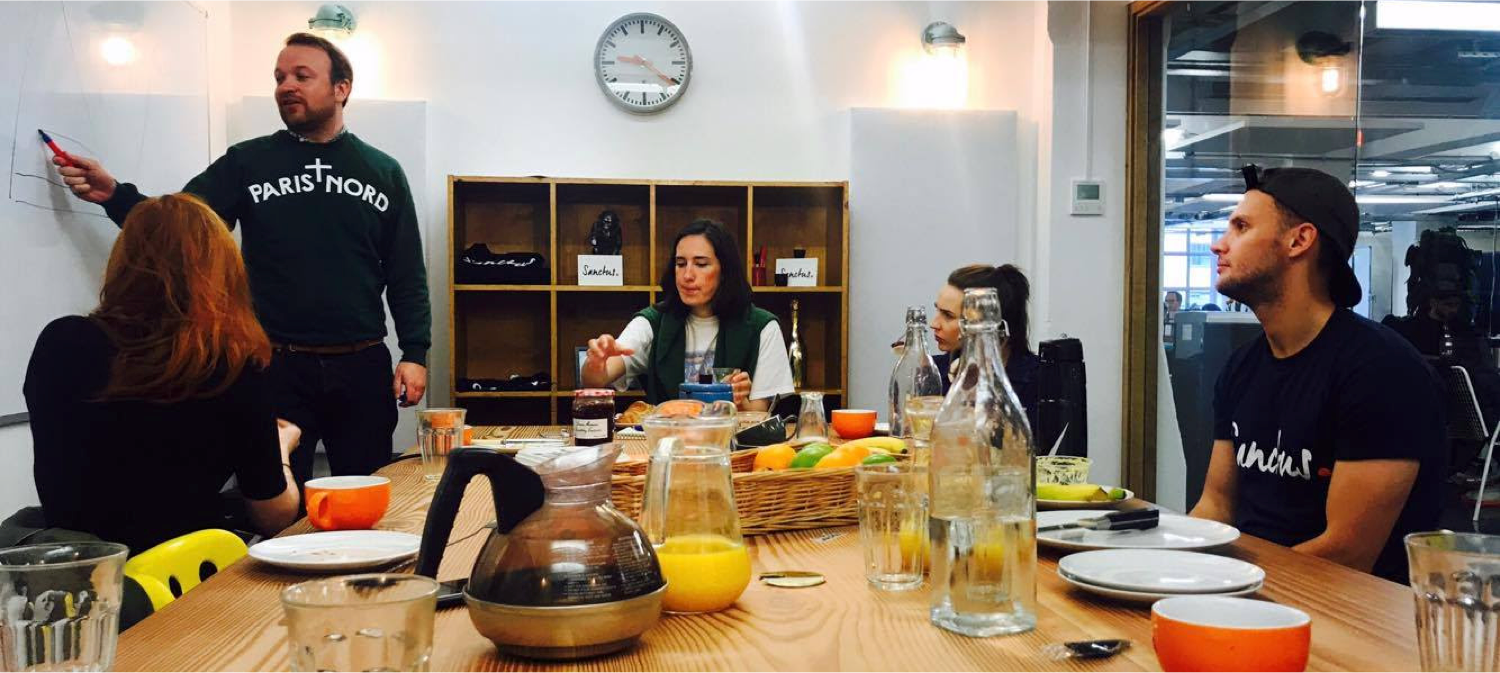Six figures in revenue, without selling a thing
How we’ve built our business so far with an alternative view to “sales”
Ok, so this headline is pretty misleading and in fact it’s the type of inauthentic headline that we’ve gone against for the last 18 months, which in turn has lead us to more success than we’d have ever imagined.
In our first year of business we were comfortably profitable whilst managing to double our team and cost-base.
In 2018, we’re on track to do the same, we might even triple our revenue and our cost base and be profitable.

We’ve begun working with some of the biggest brands in the world and we’ve continued working with some highly innovative and demanding businesses.
Throughout all of this, we’ve never once sold anything, or at least, we’ve not done “sales” in the traditional sense of the word.
In this post, I’d like to share some of our approach to building relationships with our partners and offer another perspective on “sales”.
Storytelling not selling
We have very rarely approached any partners ourselves. This isn’t just a humble brag, it’s an acknowledgment of what it takes to work with a business on their mental health. We’ve learned that nobody wants us to come knocking on their door saying; “Hey guys, you look pretty stressed and anxious, want some Sanctus?”.
We know that people need to be ready and receptive to chatting about mental health, that way our relationships work best when we’re approached and we know a business is ready to start a conversation on mental health.
So we do no outbound sales. Instead we spend time and energy telling the Sanctus Story, creating content, doing collaborations, building our community, brand and the best possible product we can.
When people do get in touch and we head over for a meeting or take a call, even at that point, we still never pitch or sell.
We start off by asking questions, why they got in touch, what resonated, what do they do for mental health right now?
When it is our turn to tell people more about what we do, we always start with why. We must have told the story of Sanctus coming into existence 200+ times, in the early days I don’t know how George managed to listen to me tell the same story over and over again.
We don’t just tell the story because we like the sound of our own voice (well maybe), we do it so it gives depth and context to why we do what we do. We want people to know that we have a personal connection to mental health and we’re not there to sell a service, we’re there to provide a space that we genuinely believe is really needed in the world.
We also don’t sell what we do, we tell what we do. We don’t promise things we can’t deliver, we don’t talk about things that we don’t actually do, we just talk about what we actually do.

Nothing but the truth
Of course, we get grilled and rightly so, working with us is a risk and a big step — you’re opening up the conversation around mental health at work and your giving Sanctus Coaches the privileged seat of company consigliere.
It’s when we’ve been getting peppered with questions from people we’d love to work with that it’s been the most tempting to sell, to desperately prove our worth and this is where I’m most proud of how we’ve built Sanctus so far.
We never ever pitch, fake it, blag it or act bigger than we are.
In fact, we often say some of these phrases which in generations gone by, would have been sales suicide;
“We don’t actually know.”
“We’ve never done this before”
“To be honest, this would be our first time doing something like that”
“It’s just us two” — in response to how big are you guys? (My personal favourite, never ever lie about company size).
What we’ve found is that through all of the above, rather than scare anyone away, we’ve managed to pull people closer to us. We’ve generated trusting relationships with our partners, because we’ve been really open with them and in turn, they’ve been really open with us.

The long game
For us, those first meetings are just the start of what we want to be a very long term relationship. We often talk to our partners about 50–100 years of working together. Relationship building in business is marriage for us, not a one night stand.
This long term view, I hope, has helped us reinforce trust from before but also create a sense of safety to our partners — we’re not going anywhere. The fact we call them partners, not customers, and really mean it, speaks volumes too, I hope.
Once we’ve established a working relationship with someone, we work as hard to keep them happy as we do to get them in the first place. We absolutely do not want to be that partner that doesn’t text back, or have that reputation for working really hard to get them, but then not caring too much once they’re in.
Our existing relationships are paramount to us and we’ve worked hard to nurture them. For us that means a consistent dialogue, it means adding value in other ways that aren’t just upselling them things, it means going above and beyond and it means responding quickly and promptly when things go wrong.
Our commitment to relationships has really stood out when things have gone wrong (because they do) and it’s been how we’ve dealt with things that have gone badly that really shows your true colours. If something goes wrong for an existing partner of ours then we practically drop everything else to try and figure it out, very few things are more important than our exiting relationships.

Saying no
Conventional business narratives imply as a fledgling young business you must say yes to everything, bend over backwards, give stuff away for free and do whatever it takes to get your first customers.
We’ve found that whilst it’s certainly true that in the early days you must experiment and try different things, actually saying “no” has been more transformative than saying yes.
We’ve said no to a lot of business in the last 2 years. For example, when a business wants to do a one-off workshop on mental health, we often say no.
We’ve said no when opportunities don’t align with our values, like the above example — we believe in treating mental health like physical health with an ongoing commitment, so it makes no sense for us to do one-offs.
Saying no says a lot about who you are as a brand and creates a line in the sand about who you are not. That way, people know what you do and what you don’t do.
On many occasions, us saying no has lead to partners saying yes.
Authentic Sales
With a long term, purpose driven and values driven approach to business we’ve been able to work (and continue working) with some incredible businesses. We’ve not had to do cold calls for 18 hours a day or spam people with linkedin messages, we’ve been able to build genuine relationships with people who want to work with us.
Our approach has meant that our product has then been really well adopted because our relationship from the start has been so healthy (another very important factor).
Then, thanks to our healthy relationships, we’ve been fortunate enough to have people tell others about what we do. Our partners have referred us to their friends and former colleagues and so we’ve made more new incredible relationships.
I say we’ve not done sales, of course we have, but I believe we’ve done what you might call authentic selling.
What we’ve not done is try our hardest to persuade someone to buy something that they might want in a desperate battle to win them as a client.
We’ve done sales our way, where it’s honestly hard for me to even write the word sales.
We wanted to write this to showcase our approach and to show that business doesn’t have to be all Gordon Gecko and Gary Vaynerchuk. As a business you don’t have to be something you’re not to sell sell sell.
You can be who you are and still… sell sell sell.

